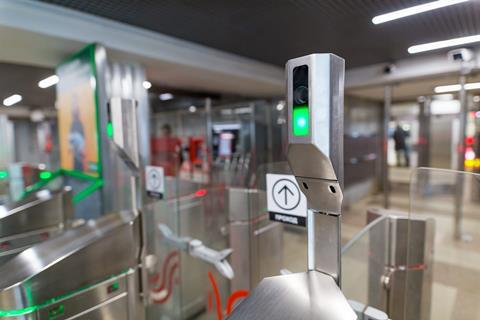
Moscow’s municipal department of transport has tested biometric identification algorithms from three Russian companies as part of plans to introduce a Face Pay facial recognition payment system on the metro by the end of the year. It concluded that VisionLabs offered the best quality followed by Tevian and then Ntechlab. Moscow Metro said the technology already contributes to finding ‘lost persons and wanted criminals’, and that Face Pay would help to reduce ticket queues.
Knorr-Bremse’s framework agreement to supply Alstom with hydraulic brake systems for Citadis trams has been extended for a further five years. ‘Knorr-Bremse has accompanied Alstom in the Citadis success story as major systems supplier for more than 20 years now. We are happy to extend this long-standing partnership’, said Mark Cleobury, member of the management board of Knorr-Bremse Systeme für Schienenfahrzeuge.
New York MTA has awarded Humatics and Siemens a $14m, 14½ month contract to develop plans for an interoperable ultra wideband rail navigation system, building on a successful 2019 pilot project undertaken to determine the effectiveness of using UWB lineside and onboard beacons to provide continuous train location information for use in conjunction with communications-based train control. The latest contract covers the development of an interoperable specification, expanding the ecosystem and preparing for UWB to be used in revenue service.

Aurecon is acting as lead consultant to the Daewoo Engineering & Construction/Dongah Geological Engineering JV which Singapore’s Land Transport Authority has appointed to design and build the Pasir Ris interchange station on the Cross Island Line.
Ernest Lluch station between Collblanc and Pubilla Cases on Barcelona metro Line 5 opened on July 25.
On July 26 Washington Metropolitan Area Transit Authority announced that the scheduled April 2022 opening of Potomac Yard metro station would be delayed by at least five months, after it determined that the original design of the automatic train control systems, based upon specifications it had written, did not meet all the requirements to ensure the safe operation of trains. WMATA said the need to redesign the ATC was the result of project management decisions for which it was accountable, and it would work with the contractor to minimise delays.


